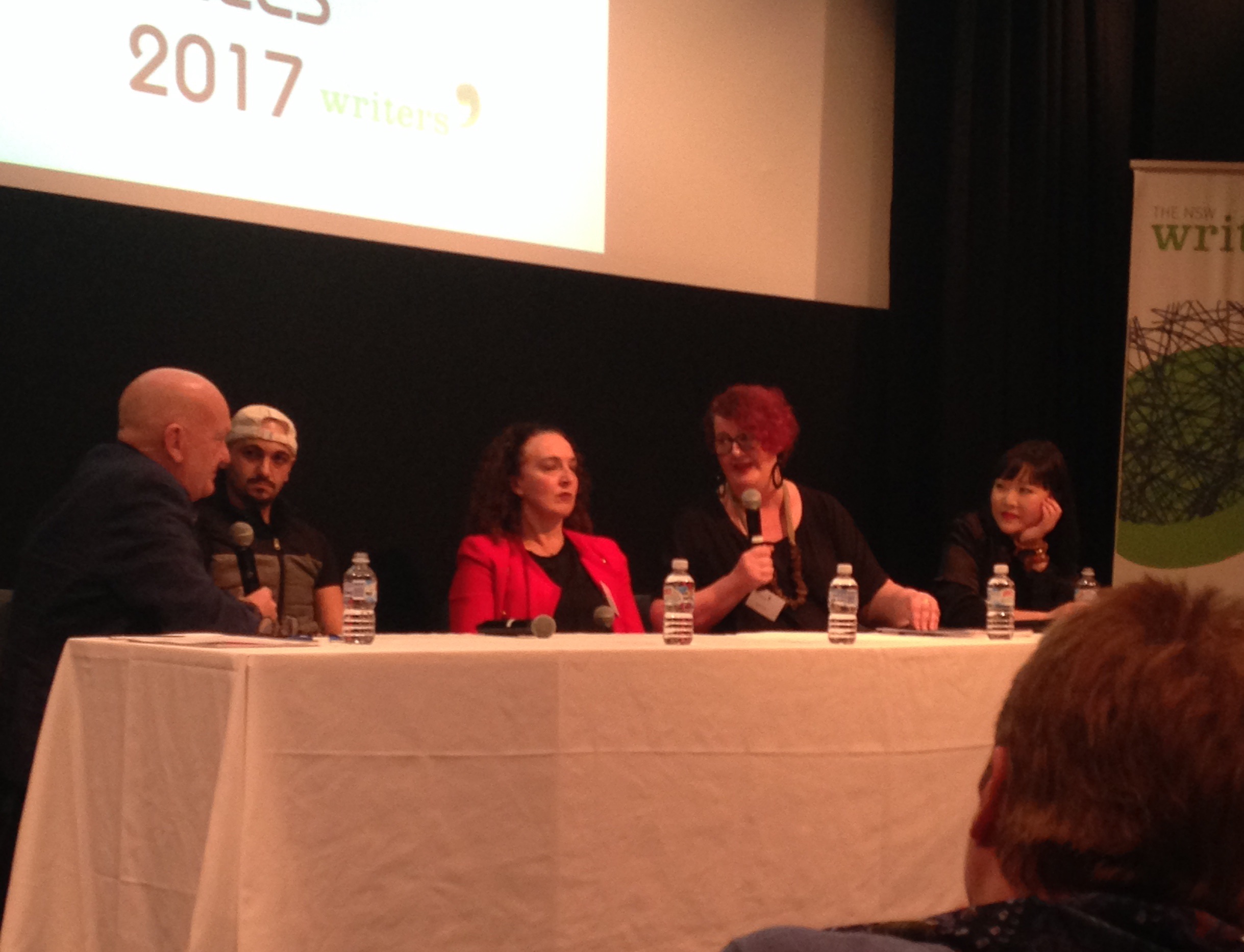Forest for the Trees
Yesterday I got up before the sun and jumped on a bus to Sydney, headed for the Sydney Writers Festival’s one-day publishing forum, Forest for the Trees. The bus originally seemed like a good idea, preferable to navigating peak-hour traffic myself, but after being trapped beside a man who was attempting to cough his lungs up for four hours, I wasn’t so sure. I arrived at the State Library frazzled and late and practically inhaled a large coffee. Thankfully, it got me back on track.
The day consisted of two keynote speakers and a number of panels that addressed various aspects of publishing. I must admit that I love a good stat (even when it depresses the hell out of me) and there were plenty of stats thrown about during the day. None of them were particularly new to me but I often find myself startled anew. For example, based on Nielsen Bookscan’s data, Julie Winters concluded, ‘We’re lucky to get 80 per cent of the population reading two books a year.’
Two. I cannot conceive of reading only two books a year; I often read two books a week. When I shared this stat with a friend she expressed doubt at its validity. But, sadly, I believe it. Bookish people surround themselves with other bookish people and the result is a skewed picture of what the general population is doing, which seems to be pretty much anything other than reading.
Despite that Winters said there is an English-language book published somewhere in the world every three seconds, and in Australia 20,000 new books (including self-published titles) are produced each year. Children’s literature is the fastest growing market, and currently makes up eight per cent of onshore sales.
Read More »Forest for the Trees

Talk naturally turned to writing and how to get published. It always irritates me when industry professionals dance around the truth, making claims that offer false hope to inexperienced writers with limited understanding of how the industry works. But thankfully there was none of that during Forest for the Trees. Sophie Hamley from Hachette revealed that over three years she has only published two manuscripts from the slush pile (where unsolicited manuscripts end up). Ask any major publisher and their stats will be equivalent, if not worse. In other words, if you’re an author you want to avoid the slush at all costs. There are a number of ways to do this. The most obvious is to acquire an agent (easier said than done) but there are other avenues too. Manuscript prizes are a good entry point, and a number of festivals and conferences now offer opportunities to have work assessed by senior editors.
Once a book is published, Hamley explained that 85 per cent of authors don’t earn out their advance. This is something that writers often worry about (amongst so many other things) and that huge figure should put their minds at rest. As everyone in publishing knows, what makes a book succeed is often a combination of intangible circumstances that even the best publicists can’t deliberately create (or recreate). Harry Potter is the quintessential example. Why did that particular book, and not another, become a publishing phenomenon? Any number of reasons can be given but, in truth, no one really knows. Bestsellers keep the industry afloat and offset the other books that don’t earn out their advances. In Australia Hachette publishes Rowling and Hamley coined it the ‘JK Rowling subsidy for local publishing’. So I guess thanks are in order, JK.

Naturally talk turned to how authors can best promote themselves and the value of creating a brand. Publishers are looking for strong author platforms and social media engagement, but as poet Hera Lindsay Bird said, ‘Don’t do social media cynically. You can’t fake it.’ Alexandra Payne, nonfiction editor at UQP, added that an author might have 23 followers on Twitter but it’s the work that matters. ‘Publishing is purely subjective,’ she said. ‘I’m publishing what I fall in love with. Authors need to find someone who gets their work.’
That said, it’s not just the editor who needs to fall in love with the book it’s also the acquisitions team, and that ultimately comes down to projected sales. Book scout Catherine Eccles said, ‘We do often find ourselves saying with Australian and Canadian books that they’re ‘too quiet’.’
‘So what about Alice Munro and Elizabeth Strout,’ an audience member piped up. ‘They’re ‘quiet’ and I love their writing.’ Eccles agreed on both counts and referred to an issue that I’ve written about previously. It used to be the case that writers were given three or four books to establish themselves, to develop their work and build an audience. Eccles cited Hilary Mantel as a classic example. It wasn’t until her tenth book, Wolf Hall, that her career took off. But these days writers live or die by their debut novel. If it’s not a success, they are unlikely to get a second shot at it. So would Mantel or Strout or Munro get a second book deal these days? Eccles said she’d like to think so, but realistically it would be unlikely.
But Michael Mohammed Ahmad was adamant that ‘a good writer will always do well’ and will eventually find a publisher to champion them. He spoke at length about the number of wannabe writers who think they are creating works of genius but are completely deluded. ‘They self-publish because they suck,’ he said. As the Australian Society of Authors’ Juliet Rogers said, ‘Whoever said everybody has a book in them deserves to be shot.’ Her comment received laughter and cheers. And that’s where I’m going to leave you, because it’s a bright spot in an otherwise gloomy picture. Onward.
